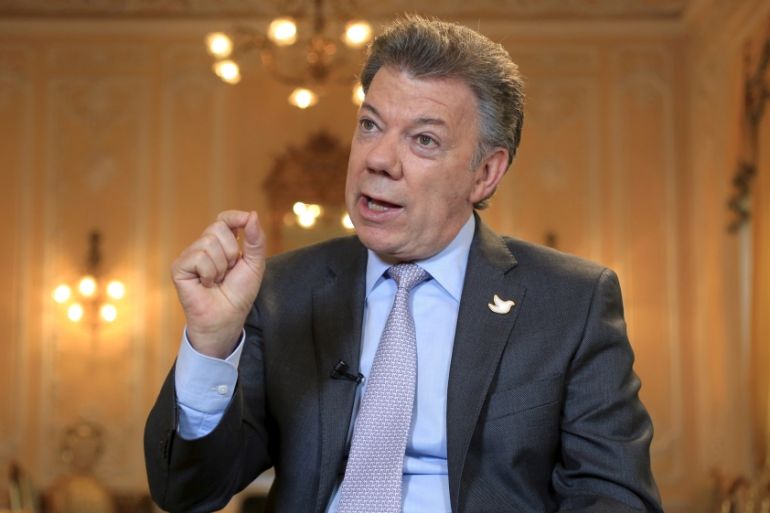Colombia: President Santos extends ceasefire with FARC
Truce extended through the end of the year as government seeks to revive a peace deal after a shock referendum defeat.

Colombia’s President Juan Manuel Santos has extended a ceasefire with the leftist FARC rebel group until the end of the year in an effort to reach a final peace deal.
The original truce, which was put in place in August, was nullified when a proposed peace accord was surprisingly rejected in a referendum earlier this month.
“I have made the decision to extend the bilateral ceasefire until December 31,” Santos, who won the 2016 Nobel Peace Prize on Friday for his efforts to end the war, said in a televised address.
|
|
“Let this be clear: This is not an ultimatum nor a deadline, but I hope that the entire process of obtaining a new agreement will be complete well before then.”
Impasse
The ceasefire extension came as Santos held fresh meetings with the opposition and members of the public, seeking a solution to the political fallout caused by the shock referendum result.
Resentful of the blood shed by the Marxist rebels and the lenient punishment the deal meted out for their crimes, voters rejected it by a razor-thin margin: 50.21 percent for the “No” camp to 49.78 percent for “Yes”.
Santos, who has staked his legacy on making peace, had previously said that the army would halt its ceasefire at the end of this month if no solution to the impasse was found by then.
The FARC, which had criticised Santos’ deadline, has also confirmed its willingness to continue negotiations and maintain a bilateral ceasefire.
WATCH: Can peace in Colombia be saved?
The accord signed by Santos and Rodrigo Londono, leader of the Revolutionary Armed Forces of Colombia, or FARC, on September 26 was aimed at ending the Colombian government’s five-decade war with the rebel group.
Opponents want to renegotiate the terms of the accord, saying it concedes too much to FARC, including guaranteed seats in Congress and reduced sentences for fighters who confess to war crimes.
The conflict between FARC and the government began in the 1960s over inequality and rural land rights.
Since then, the violence has killed more than 220,000 people and displaced millions.
|
|